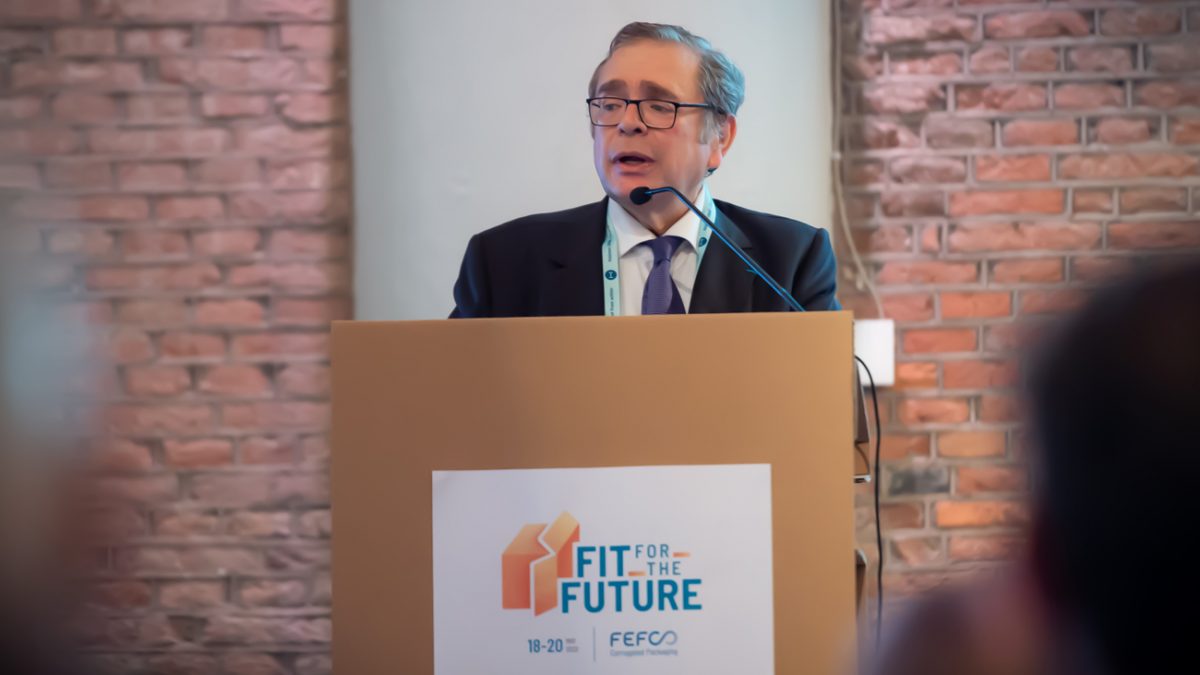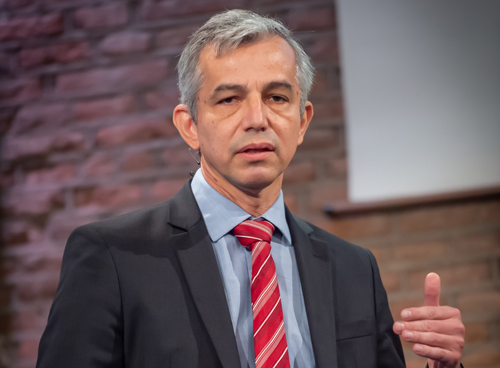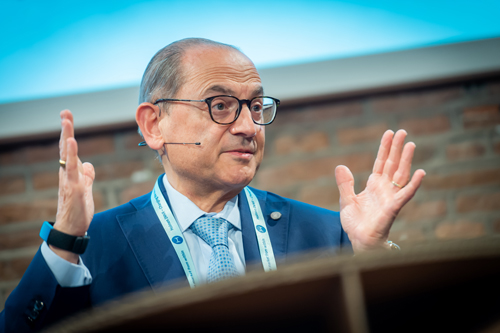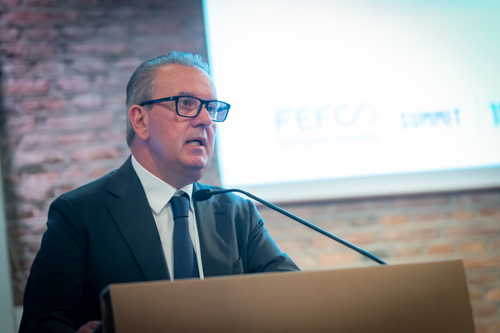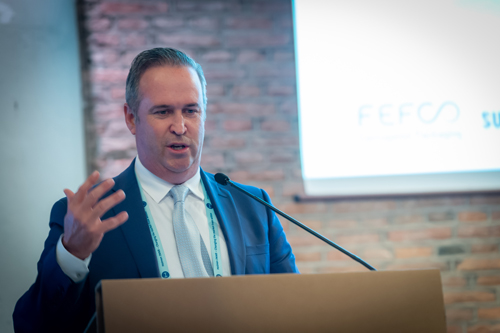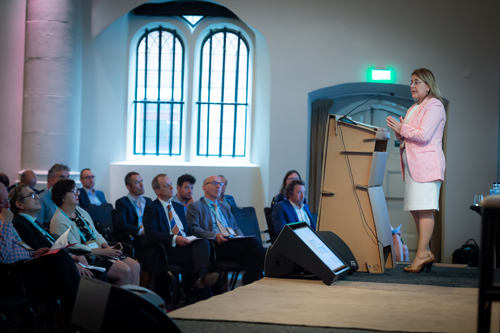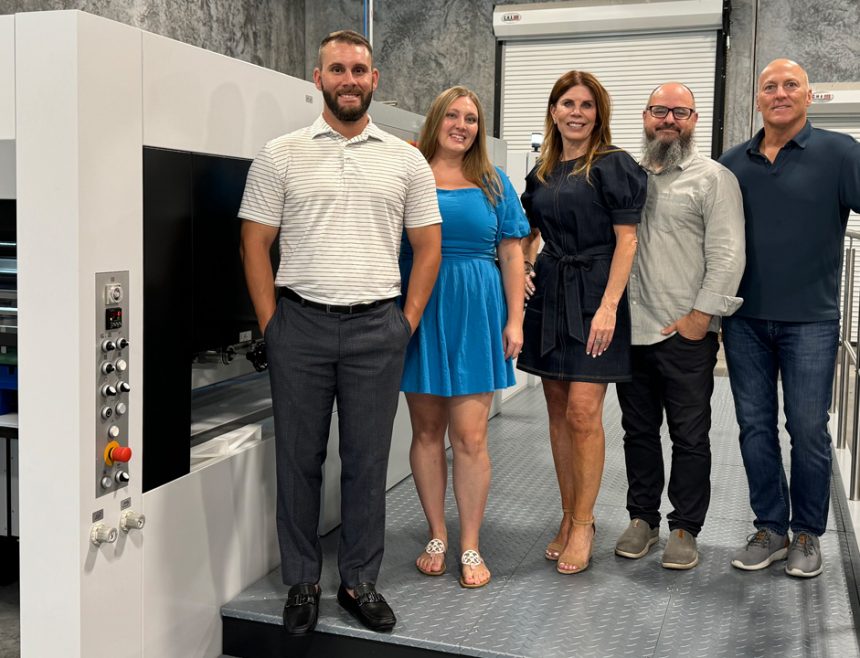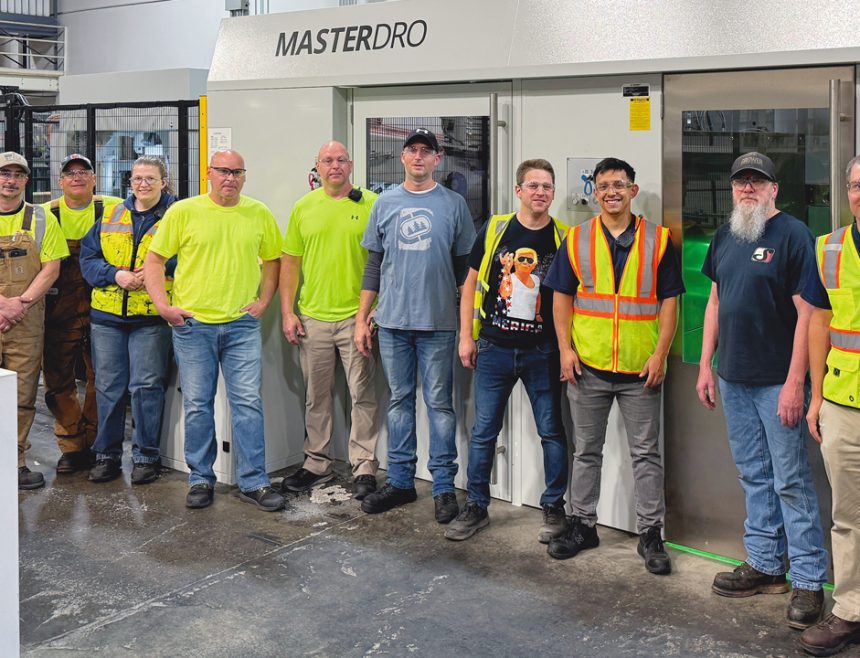FEFCO welcomed 250 participants at its Summit in Amsterdam (18-20 May), and what better occasion for the association to celebrate its 70 year anniversary?! The conference programme was built around sustainability and carbon neutrality from the policy makers, industry, NGO, and retailers’ perspective.
Fady Gemayel, FEFCO President, opened the Summit, ‘Fit for the Future,’ which addressed important issues notably the Green Deal and climate neutrality while putting forward the virtues of corrugated packaging.
Dirk Ockerman, the President of the Corrugated Benelux association (CBA), the hosting country, kicked off the conference. Climate neutrality and sustainability matters have been addressed by Ilkka Leppävuori (Bain & Company).
Then Alex Manisty, Chairman of FEFCO climate neutrality steering committee presented FEFCO’s project and shared the first results of the carbon neutrality roadmap. He said, “We believe that the corrugated industry can reduce its footprint by 30% by 2030 and can reach net zero by 2050 if the whole supply chain works together.” The session continued with several examples of the climate and sustainability work from the sector by Maija Pohjakallio (Metsä Group) who shared the company’s vision for circular and collaborative fibre-based innovations, and by Flavio Deganutti (Klabin in Brazil) who described how the industry can build for the future, from sustainable forests to packaging.
Speakers from retail shared their views on sustainability where Marion Beugelsdijk (Albert Heijn) underlined amongst others the need to address over-packaging, reuse, recyclability, and the need of high recycled content. Sara Lone (Amsterdam University of Applied Sciences) shared recent data and e-commerce market development trends and some useful insights on European consumer behaviours as well as their expectations regarding sustainable packaging.
In his keynote speech, Magdi Batato (Executive Vice President, Nestlé) emphasised the importance of innovation and collaboration within the value chain. Nestlé’s Net Zero pledge will require the packaging industry to innovate for creative sustainable solutions.
Saverio Mayer (CEO Europe, Smurfit Kappa) echoed this and invited the industry to cooperate with the supply chain, he concluded that reaching climate neutrality will be a game changer for our industry.
Michael Lafave (Kruger Packaging) added that sustainability is and will remain at the core of any business nowadays.
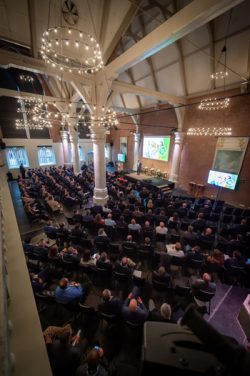 On the second day, Diederik Samsom (Head of Cabinet of EU Vice-president Timmermans) highlighted that the Green Deal is the new growth strategy for Europe and the corrugated packaging industry should embrace it while accelerating the path towards circularity and climate neutrality. Tom Berendsen (EU Parliament / ITRE committee) insisted on the fact that a European industrial strategy is essential, and Europe needs suitable legislative pathways to ensure the industry can support the green transition.
On the second day, Diederik Samsom (Head of Cabinet of EU Vice-president Timmermans) highlighted that the Green Deal is the new growth strategy for Europe and the corrugated packaging industry should embrace it while accelerating the path towards circularity and climate neutrality. Tom Berendsen (EU Parliament / ITRE committee) insisted on the fact that a European industrial strategy is essential, and Europe needs suitable legislative pathways to ensure the industry can support the green transition.
Outi Marin (FEFCO Chair Sustainability & Circularity Workgroup) revealed the first findings of three scientific studies commissioned by FEFCO on recycled versus reusable packaging which show that fit for purpose recycled corrugated outperforms reusable packaging on a series of environmental indicators. This work gives the industry a strong position in supporting the EU Green Deal.
Adeline Farrelly (FEVE) presented the furnace for the future, which will help the glass industry in its green transition. Talking about packaging she added that the industry needs to maintain the core functionality of packaging in the most sustainable way.
Piotr Barczak, (European Environmental Bureau), presented principles and positions developed by NGOs to make packaging more sustainable, he insisted on the necessity to reduce over-packaging and invited the industry to be innovative.
In the last session, there was a lively debate on the importance of branding, single-use and reusable packaging, the industry speakers concluded that both options are needed, and the choice must be made on a case-by-case basis.
The event was wrapped up by Jan Klingele, FEFCO Vice President who concluded on a positive note about the resilience of the industry and the value of our products to society.
Eleni Despotou, FEFCO Director General concluded, “Our key objective is to enable a favourable regulatory environment and a level playing field for members to operate. Furthermore, regulatory certainty and predictability are key to enable the industry to innovate and effectively drive through the transformation pathway of the Green Deal.”

